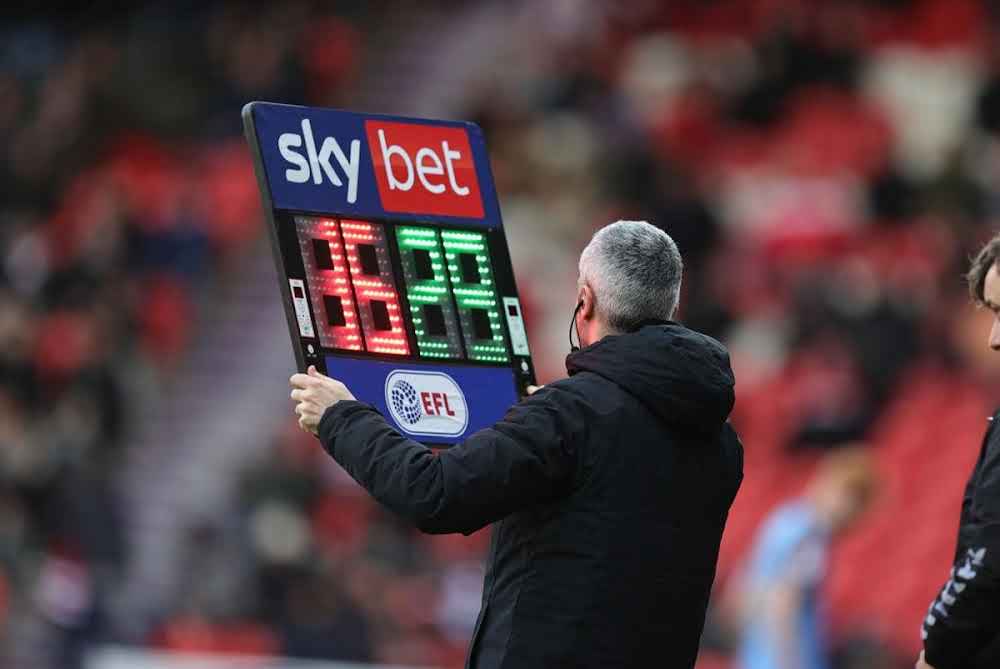

Referees will change their approach to timekeeping this season, while there have been a number of other tweaks and adjustments to the rules
The EFL has announced rule changes for the coming season designed to increase the amount of time the ball is in play in a move that will affect Leeds United as new boss Daniel Farke looks to plot a Championship promotion campaign. The EFL has given match officials new directives this season to ensure a more accurate calculation of added time, which should increase the amount of time the ball is in play.
Whereas in previous seasons a set nominal amount of time was added for events such as goals and celebrations, substitutions, injuries and treatment, penalties, and for players to leave the field after being sent off, this season referees will add the actual amount of time that those events take. The EFL had already confirmed that it will use the multi-ball system from this season, which should speed up restarts as it has done in other leagues including the Premier League.
Referees will also take a ‘more robust approach’ to players clearly or deliberately delaying the restart of play, with yellow cards handed out to those delaying restarts or failing to retreat ten yards at free-kicks. Rules on the treatment of injuries will also be tightened, with players now expected to receive attention off the pitch except in certain circumstances such as an injury to a goalkeeper, a collision between a goalkeeper and an outfield player, a collision between two players from the same team, a severe injury, an injury caused by an offence in which the opposing player was punished by either a red or yellow card, or when a penalty has been awarded and the player in need of treatment is due to take the spot-kick.
Players that leave the field for treatment must remain off the pitch for at least 30 seconds before the referee allows them to re-enter the action, and the wait could be longer if the current phase of play is close to where the player is preparing to come back on. Where players decline to be treated by a physio but a teammate refuses to restart play, that teammate will receive a yellow card in a bid to deter players from requesting attention to waste time or break up the momentum of the game.

Also new for this season is a minor tweak to the wording of the rules surrounding denial of an obvious goalscoring opportunity offences. Players who commit such an offence inside the penalty area will concede a penalty and receive a yellow card if the the offence was an attempt to play the ball or a challenge for the ball.
A red card will still be issued in all other circumstances. That rule change is designed to clarify that players should only receive a yellow card if they are making a genuine attempt to play the ball, while red cards are reserved for non-footballing actions such as holding, pushing, handball, or where there was no possibility of playing the ball.
And there has also been a clarification to the offside rules and what constitutes a ‘deliberate play’ by a defender, in which case an attacker should not be considered offside. If a defender is considered to be in control of the pass, attempt to gain possession or make a clearance, it would be a deliberate play and the attacker would not be offside.
An inaccurate or unsuccessful action does not change the fact that the defender deliberately played the ball.








